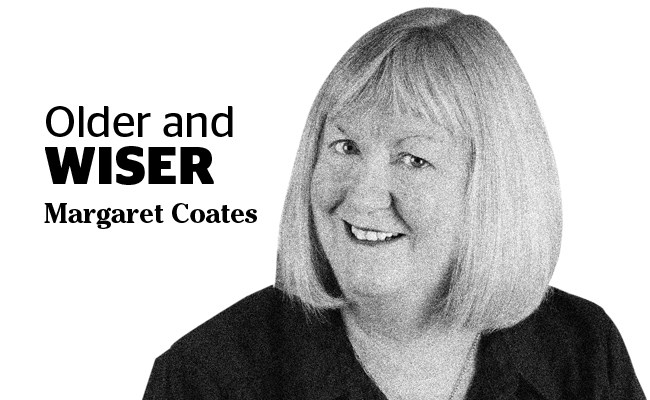Are seniors as well-heeled as people think they are?
I don’t think so. Neither does the Seniors Advocate for B.C. “Since 2013, B.C. senior families saw their annual median income fall 5.7 per cent and for a B.C. single senior, the decline is even steeper, with a 6.3 per cent drop since 2013,” said Isobel Mackenzie, B.C. Seniors Advocate, in a July 13 news release, entitled “StatsCan Income Data Good News for B.C. Families ... Bad News for B.C. Seniors.”
This seems to fly in the face of prevailing attitudes that seniors are rich, golf-playing world travellers. Mackenzie went on to say that, “We have to start paying attention to what the data are telling us and stop listening to generationally divisive inaccurate generalizations that portray seniors as rich.”
The reasons for the decrease in income include low interest rates, which make borrowing an attractive and sometimes necessary option, increased life expectancy, which can outlast savings, and private sector pensions unable to provide cost of living increases.
Seniors debt has also been increasing. A June 29, 2015 CBC Almanac report stated that there has been a 400 per cent increase in a 15-year period in seniors declaring bankruptcy. A Statistics Canada report shows the number of seniors in debt aged 65 and over jumped by 40 per cent between 2012 and 2015.
Reasons for rising debt, says Scott Hannah of the Credit Counselling Society, are that seniors may be assisting adult children in tough economic conditions, retiring with a substantial debt load, including a mortgage, or experiencing an unforeseen crisis such as an expensive medical problem.
On the North Shore it is not as rosy as we might expect.
The three municipalities are experiencing a shortage of affordable rental housing. Those seniors on a fixed income who rent on the North Shore may not be able to afford to continue to live here despite their desire to do so. The City of North Vancouver’s City Shaping document says “rental housing is often insecure, increasingly in need of repair and challenging to find at affordable rents.”
Not every senior can afford a country club membership. So, what can be done for seniors with declining incomes?
Hannah thinks that seniors, after assessing their debt and income, could curtail their working life spending habits, sock away funds for life events and plan for extended illnesses, medications and insurance.
Those seniors who are fortunate enough to own their own home, but are on a fixed income can avail themselves of the deferred property tax payment offered by the province as a way to reduce expenses.
The community and government can create and maintain support services and programs as a way for seniors with shrinking incomes to live with dignity on the North Shore. Seniors organizations such as Silver Harbour Seniors’ Activity Centre and West Vancouver Seniors’ Activity Centres offer low-cost programs and services in order to achieve this goal.
The Seniors’ Hub, a program offered by Capilano Community Services Society, provides support at little or no cost to frail, isolated seniors on fixed incomes.
“We want our seniors who have worked and lived on the North Shore for most of their lives to continue to make it their home here for as long as they are able,” says Melanie Macauley, Seniors’ Hub co-ordinator.
It’s good to see the federal government’s recent increase in support of families with children. Let’s not drop the ball for seniors.
Margaret Coates is the co-ordinator of Lionsview Seniors’ Planning Society. She has lived on the North Shore for 47 years and has worked with and for seniors for 20 of those. Ideas for future columns are welcome. Email: [email protected]. lionsviewseniorsplanning.com



